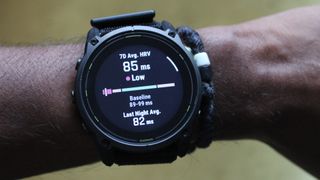
Charleston voters opted for a new mayor with a new way of doing business. That’s how our democracy works. Now, almost a year into Mayor William Cogswell’s first term at City Hall, I have been following the money.
You should, too. Start with Union Pier, that forever-promising, forever-frustrating jewel on the Cooper. Charleston businessman Ben Navarro has negotiated a preliminary deal to buy those 65 barren, polluted acres from the S.

C. State Ports Authority. As always, the devil is in the details, and we know almost nothing because the contract has yet to be finalized and released to the public.
Steve Bailey But as the city moved last month to create a special tax district to finance the projected $400 million in public infrastructure costs for Union Pier, we started to get a look under the tent. Taxpayers take note. First, the city reduced by half the projected annual property tax revenue Union Pier will produce to $25 million from $50 million.
Then the Charleston County School District, wisely, insisted the city vacate the top floor of 75 Calhoun St., the district’s headquarters, and surrender parking spaces in exchange for forgoing its share of those property taxes. That concession package is valued at almost $100 million over the life of the lease.
The city, in a far-less-costly deal, also agreed to give up parking in the Cumberland Street garage to Charleston County. City Councilman Boyd Gregg of Daniel Island was the lone "no" vote, saying the special tax district was, in effect, a massive city subsidy to State Ports, allowing it to get a higher price for Union Pier. “This is a rotten deal for the taxpayer and the city,” Gregg said.
You wanted Union Pier developed and developed well? Be prepared to pay for it. I never liked this deal from the beginning, threatening a developer with eminent domain to force it to sell the old Piggly Wiggly site in West Ashley to the city. This was what Mayor John Tecklenburg wanted.
It may well have cost him his job last year. Here we are, seven years later, and Cogswell, a developer by trade, has brought in his own hand-picked developer and gotten a deal through City Council that Tecklenburg could not. The two plans would have cost taxpayers roughly the same — Cogswell’s $48 million, Tecklenburg’s $45 million.
But at the end of the day, under the Tecklenburg plan, the city would have owned a significant new municipal building and a parking garage in West Ashley. The city will own park land and some community space under the Cogswell plan. Like Union Pier, getting Sumar Street done comes at a steep, developer-friendly price.
The city is going to need new office space, given it’s surrendering about 30,000 square feet at 75 Calhoun in the Union Pier deal. It won’t be able to put employees in those offices on Sumar Street, so it just agreed to spend $6.5 million for a former assisted living facility near Ashley Landing.
The price of building out those city offices is to come. The city is also spending $14 million to develop a training center for firefighters and police in West Ashley Circle. Under Tecklenburg, it was to go on city-owned property on the Upper Peninsula, but Cogswell moved it and instead wants to build 118 tiny, temporary shelters for homeless men there.
That initiative, budgeted at $5.5 million to build and $1.5 million a year to operate, is at risk of collapsing if Cogswell can’t persuade the county and other municipal governments to participate.
And put me down as a skeptic when Cogswell says his last-minute tinkering with the West Ashley bike-ped bridge isn’t going to add costs to the $80 million project. The city considered but ultimately didn’t return a $7 million federal grant Tecklenburg won for the Lowcountry Lowline. That’s a good thing because it would have violated Bailey’s First Rule: Never give back the money.
Cogswell is paying his chief of staff, Elizabeth Dieck, $250,000 a year, or $80,000 more than Tecklenburg paid top staffer Rick Jerue. State Rep. Wendell Gilliard, who endorsed Cogswell, got a $100,000-a-year second job at City Hall; local activist Mika Gadsden, who also endorsed Cogswell after finishing fifth on Election Day, is on the payroll at $75,000.
Logan McVey, who ran Cogswell's campaign, makes $175,000. In all, the cost of the mayor’s office has risen to $2.4 million from $1.
6 million, or 50%, in Cogswell’s first year. The meter is running. And it says nothing good that the Cogswell administration, unlike Tecklenburg's, unlike the state and unlike the county, has removed compensation information for employees making $50,000 or more a year from the city's website.
Now if you want to know who makes what in the city of Charleston you have to file a Freedom of Information request and wait up to 30 days. So follow the money, taxpayers — if you can. Steve Bailey is a regular contributor to The Post and Courier Opinion section.
He can be reached at [email protected] ..















